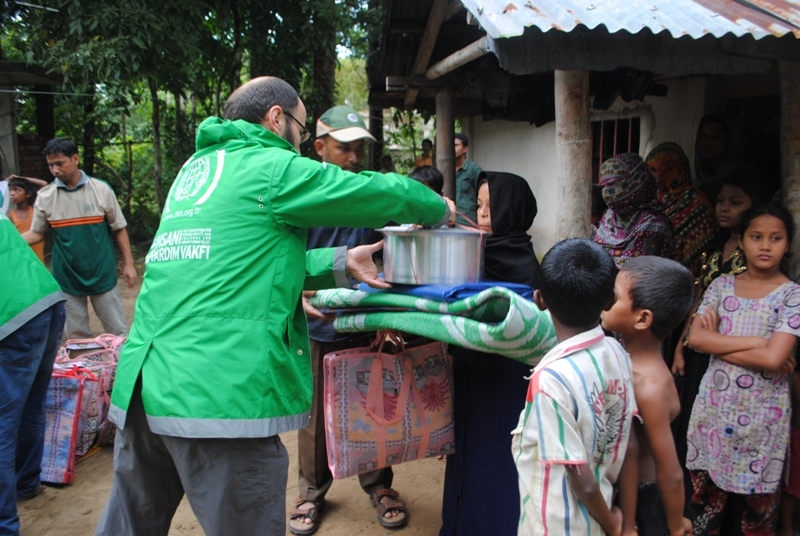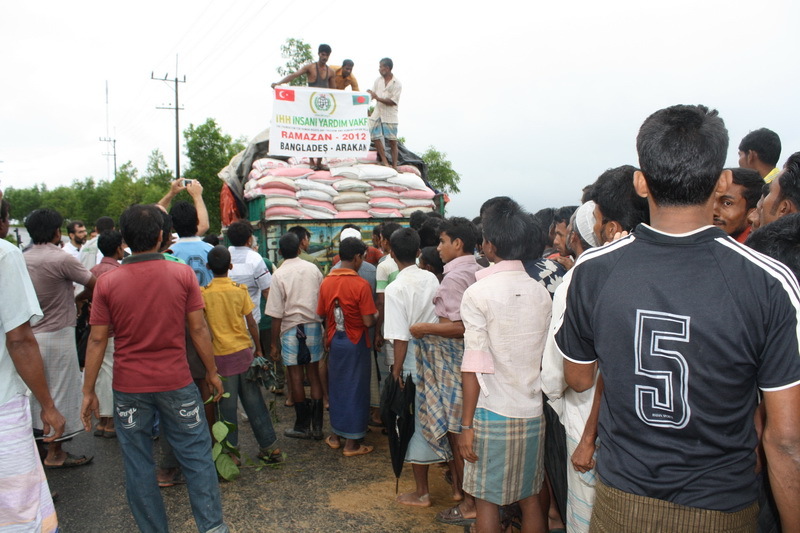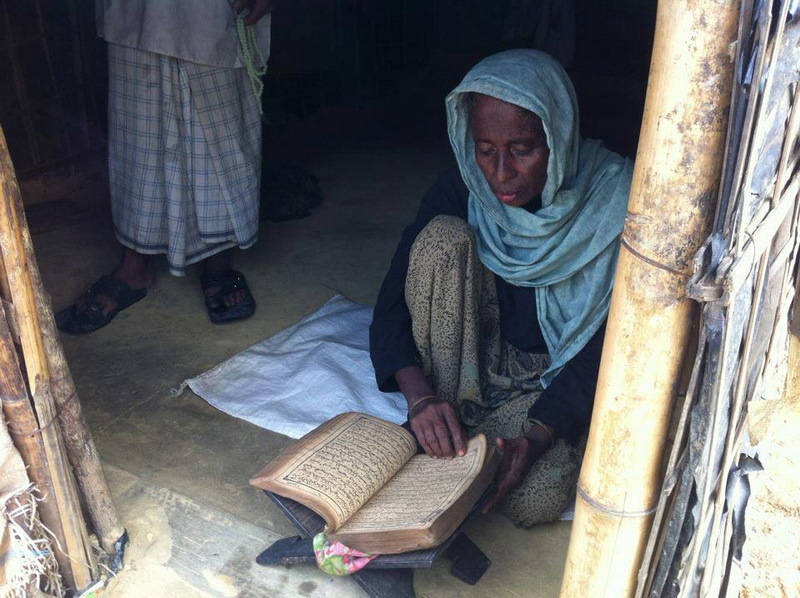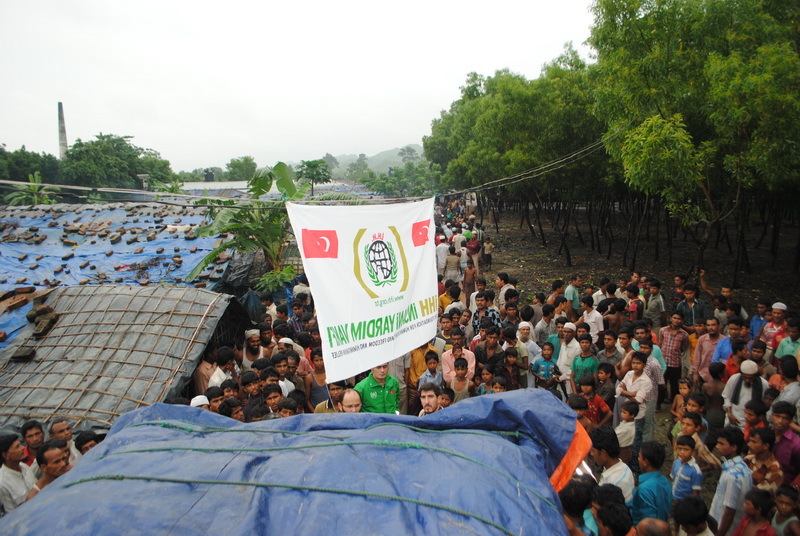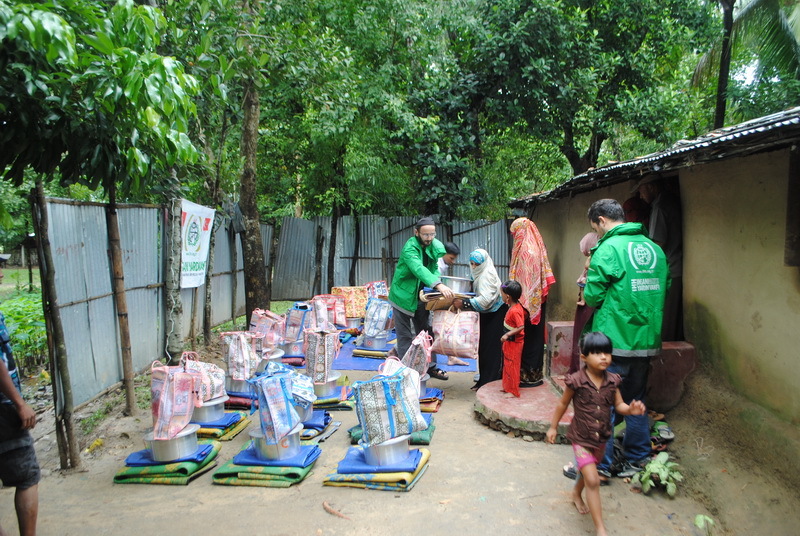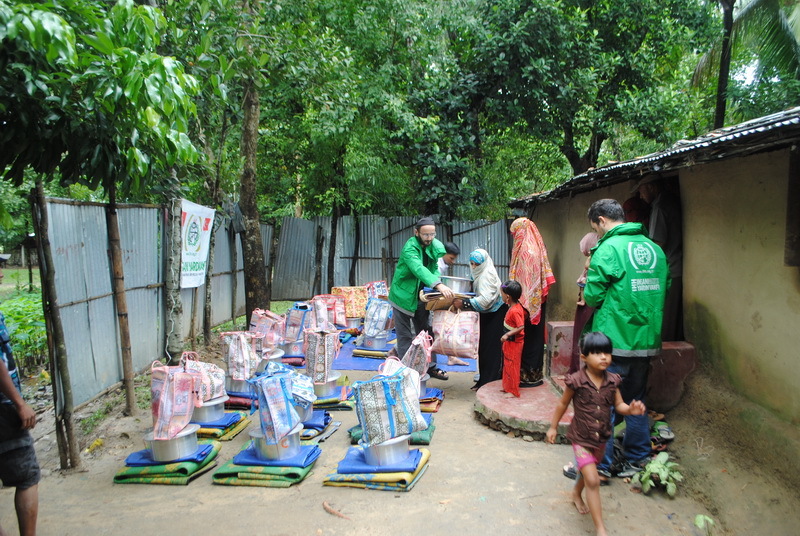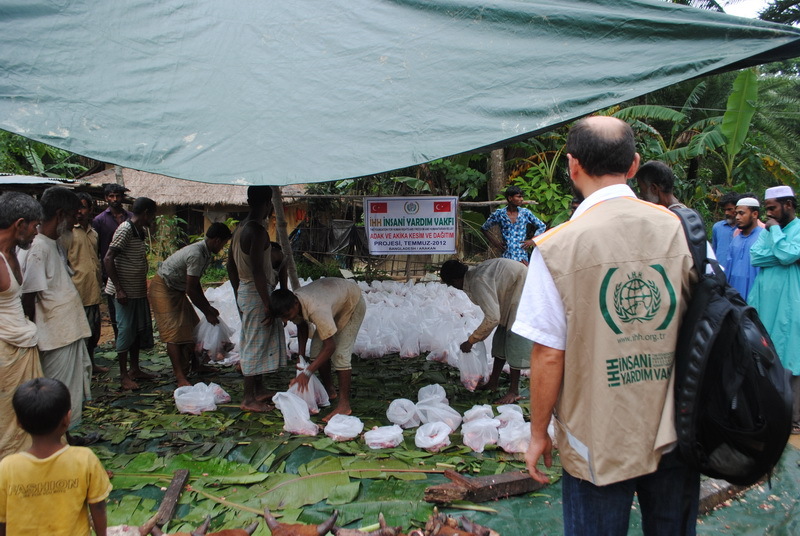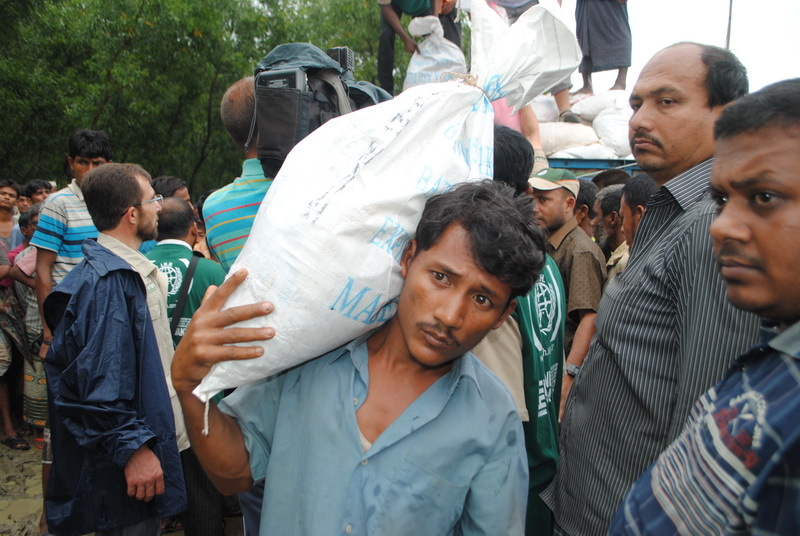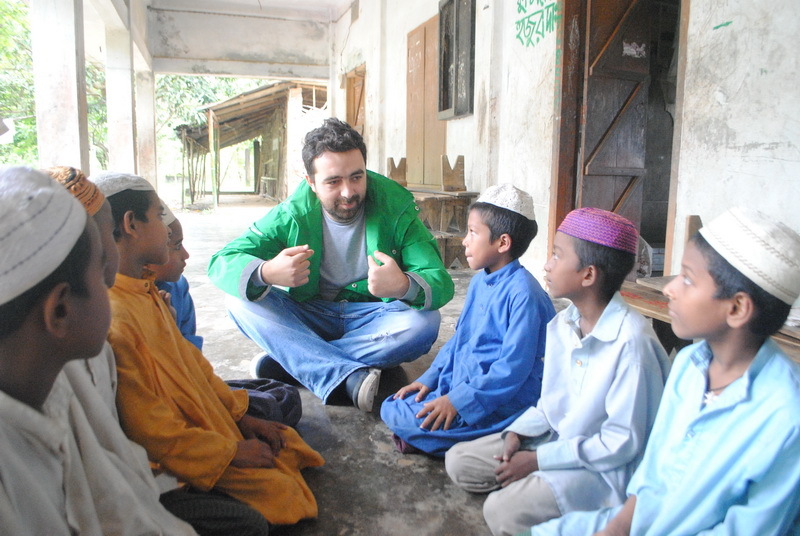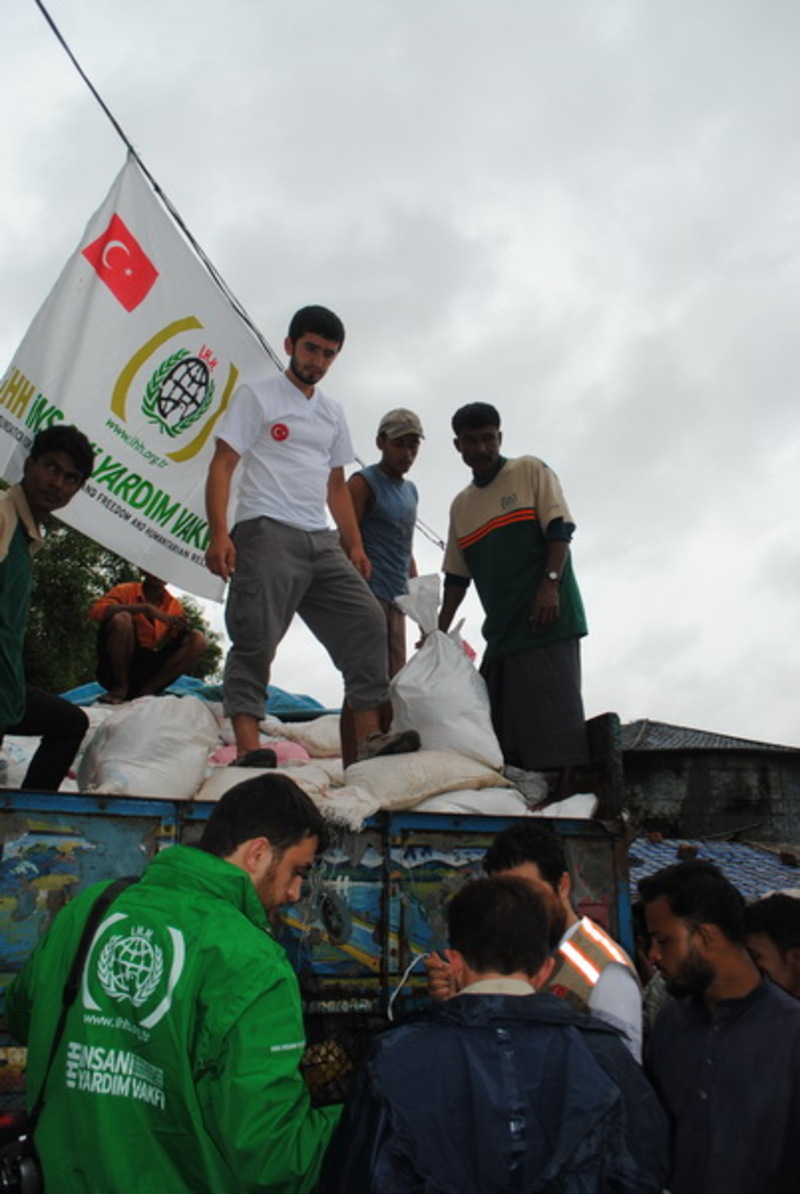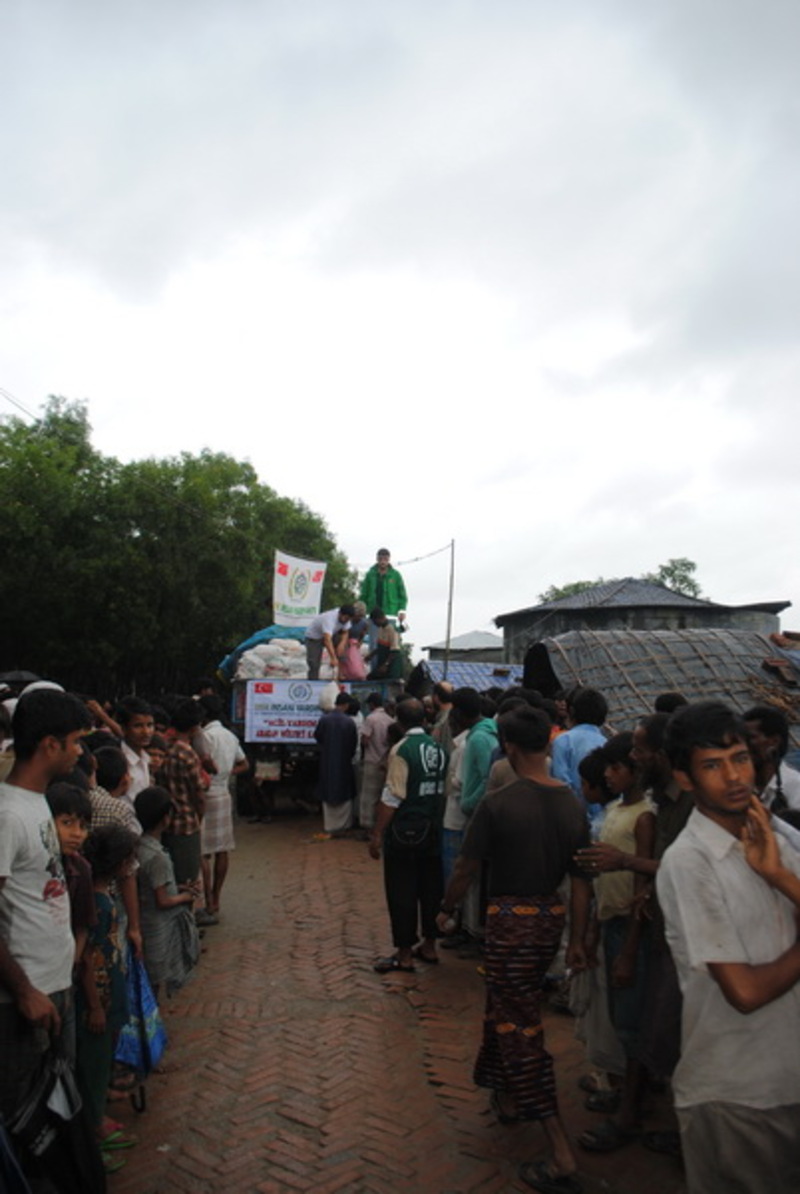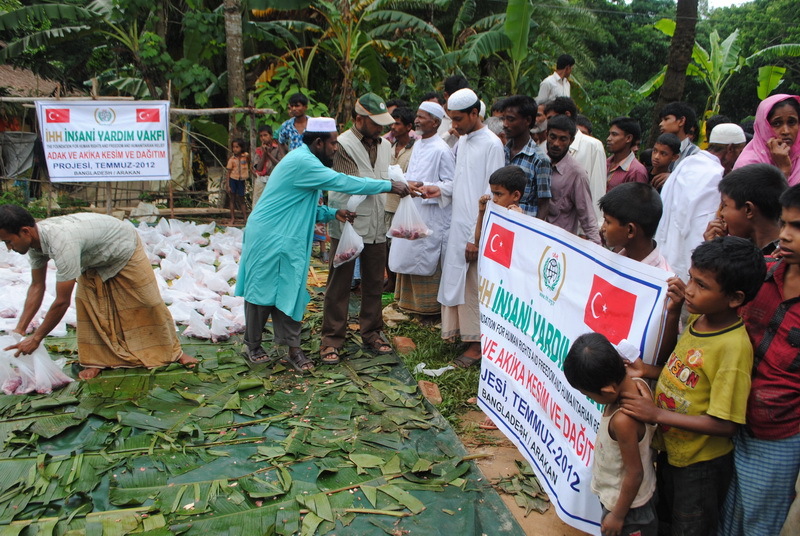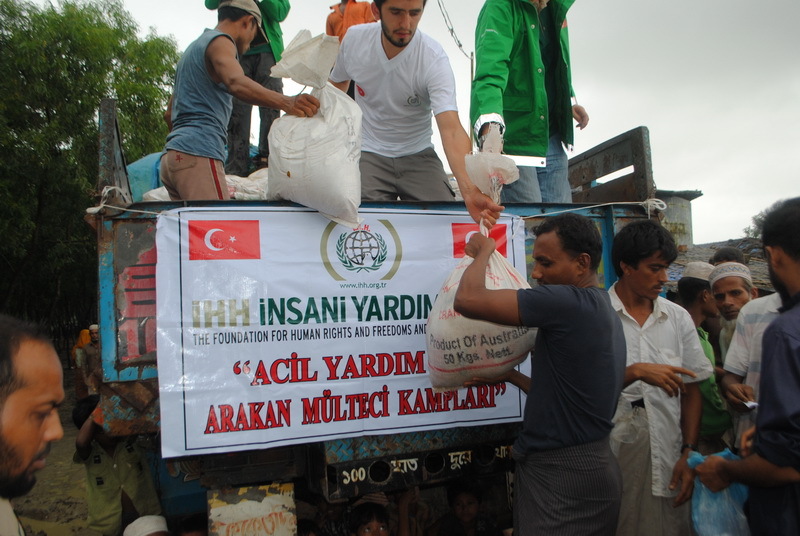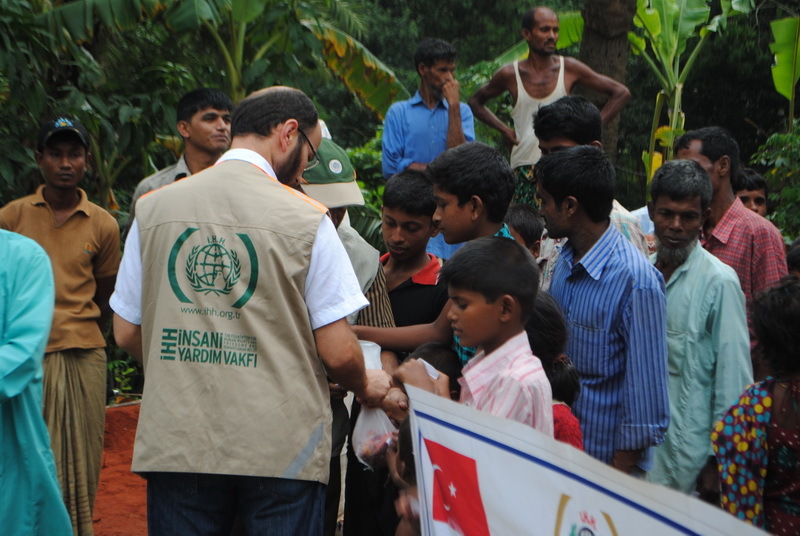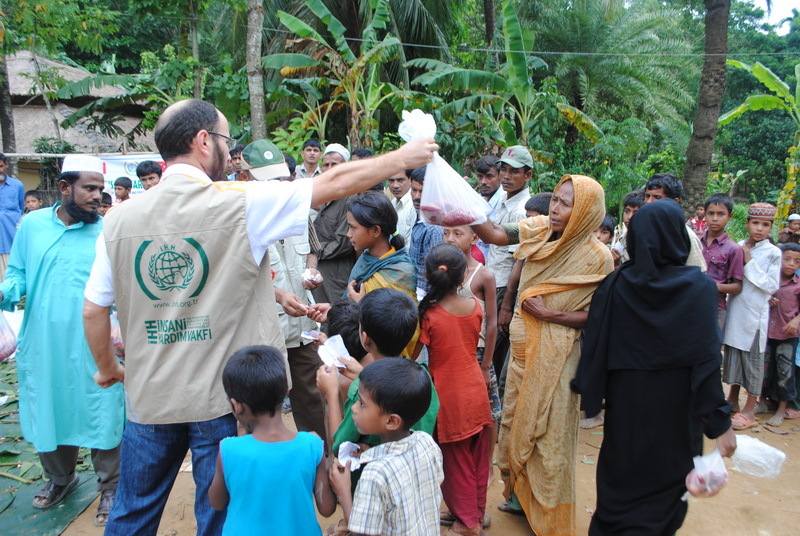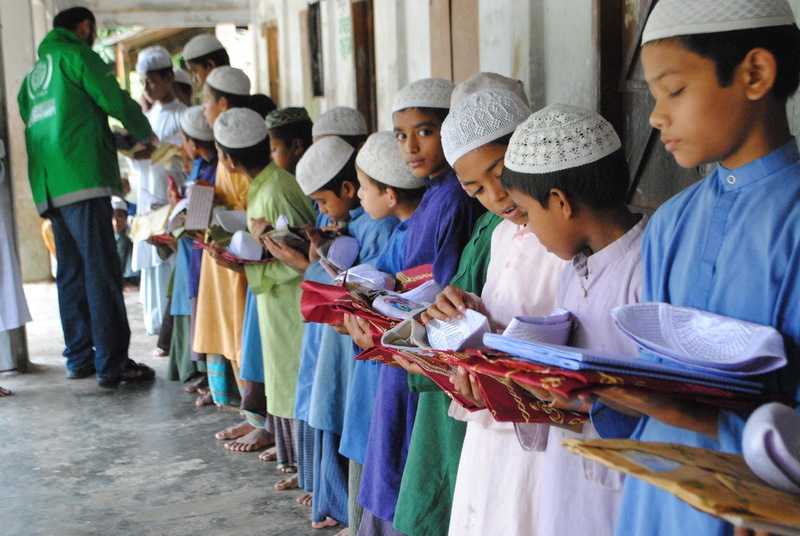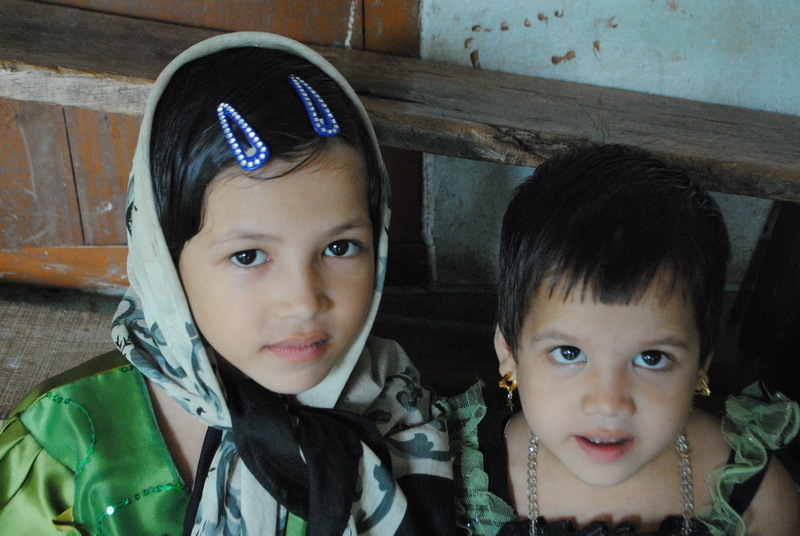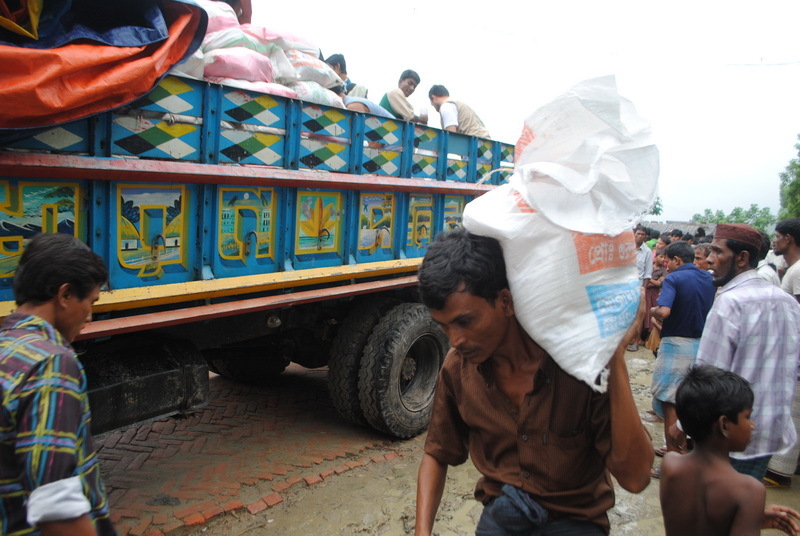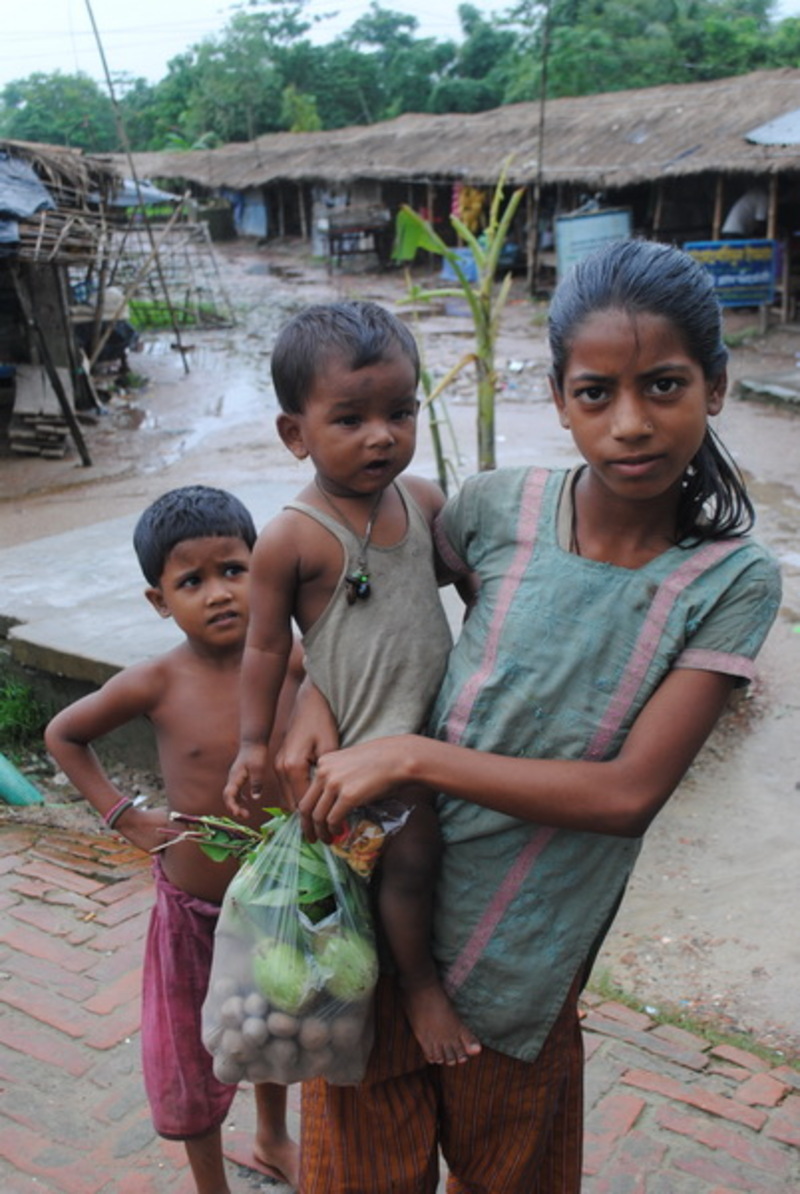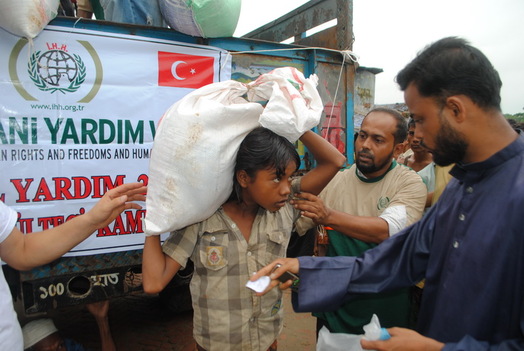
The foundation has launched an aid campaign particularly to assist the Muslim Arakanese living in refugee camps in Bangladesh. So far around 200,000 Muslim Arakanese have been delivered assistance.
On one hand, IHH emergency aid teams are meeting shelter, food, health and other needs of the Arakanese who arrived in the camps on the Bangladesh border in the previous years, on the other hand they are delivering emergency food packages to the refugees who fled their homes, leaving behind everything they had. Over the last three months, IHH relief aid reached about 200,000 Arakanese people.
Emergency aid teams of IHH are carrying on efforts on the Myanmar-Bangladesh border. IHH teams that have 17-year long experience in the region and are quite acquainted with the area are currently conducting observations and aid activities on the Myanmar-Bangladesh border and at refugee camps sheltering those who were able to escape to Bangladesh.
IHH Humanitarian Relief Foundation has been trying since 1995 to ease the hardships facing the Muslim Arakanese and publicize their suffering across the world. To this end, the foundation sent teams to the region as soon clashes broke out and set up a crisis desk. Our teams initially delivered food aid and cash donations to the refugees who sought shelter in Bangladesh.
While carrying out relief efforts on the ground, IHH also assessed the supplies urgently needed by the affected people.
In a report it prepared, the foundation listed emergency materials needed under three main categories. Basic food items top the list of urgently needed materials.
The next urgently needed item is durable canvas as monsoon season has brought heavy rainfall. Arakanese fleeing for their lives could not take anything with them. That is why kitchen tools and hygiene materials are among dire needs.
Food packs distributions in refugee camps and surrounding villages initially reached 33,000 people.
Special emergency food packages were prepared for refugees that arrived in the camps recently. The emergency aid packages that were distributed to 3000 families contained medicine and hygiene kits, tarpaulin covers, blankets, mosquito nets, clothing, kitchen tools, rice, sugar, salt, powdered milk, cooking oil, flour, Shemai (local food), potatoes, chickpeas, and cash donations.
A number of nazhr and aqiqah sacrifices were slaughtered and the fresh meat was distributed to Muslim Arakanese.
Nazhr and aqiqah animals donated through IHH were also delivered to the Muslim Arakanese.
A number of cattle were slaughtered and their meat was distributed by IHH teams to 5000 families living in refugee camps and surrounding villages.
As pressure and attacks against Muslims in Myanmar’s Arakan region rage on, migration to refugee camps near the Bangladesh border continues. The Arakanese fleeing massacre try to cross the Naf River in makeshift rafts and reach refugee camps on the Myanmar-Bangladesh border. A tough life awaits those who manage to make it to the camps.



